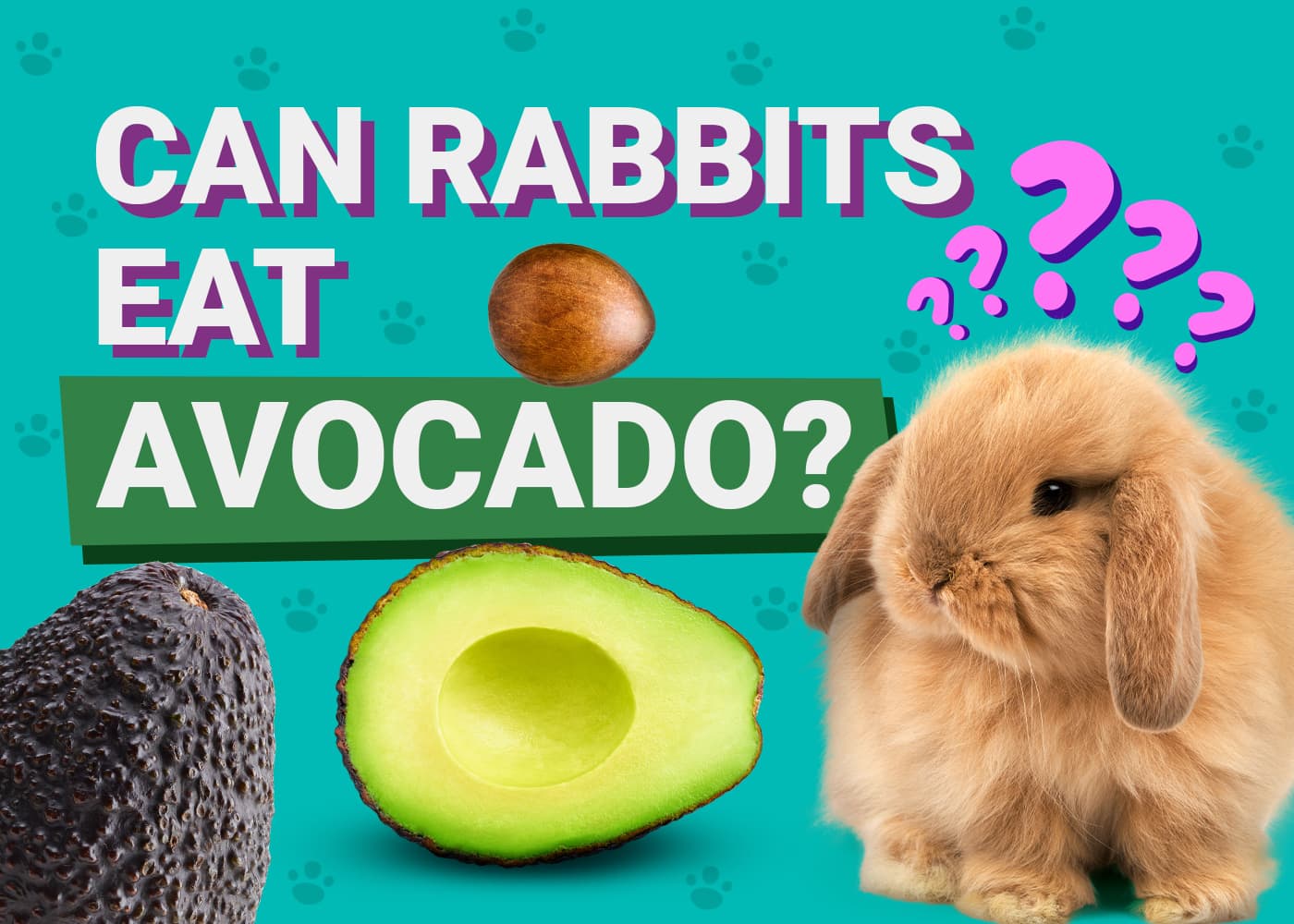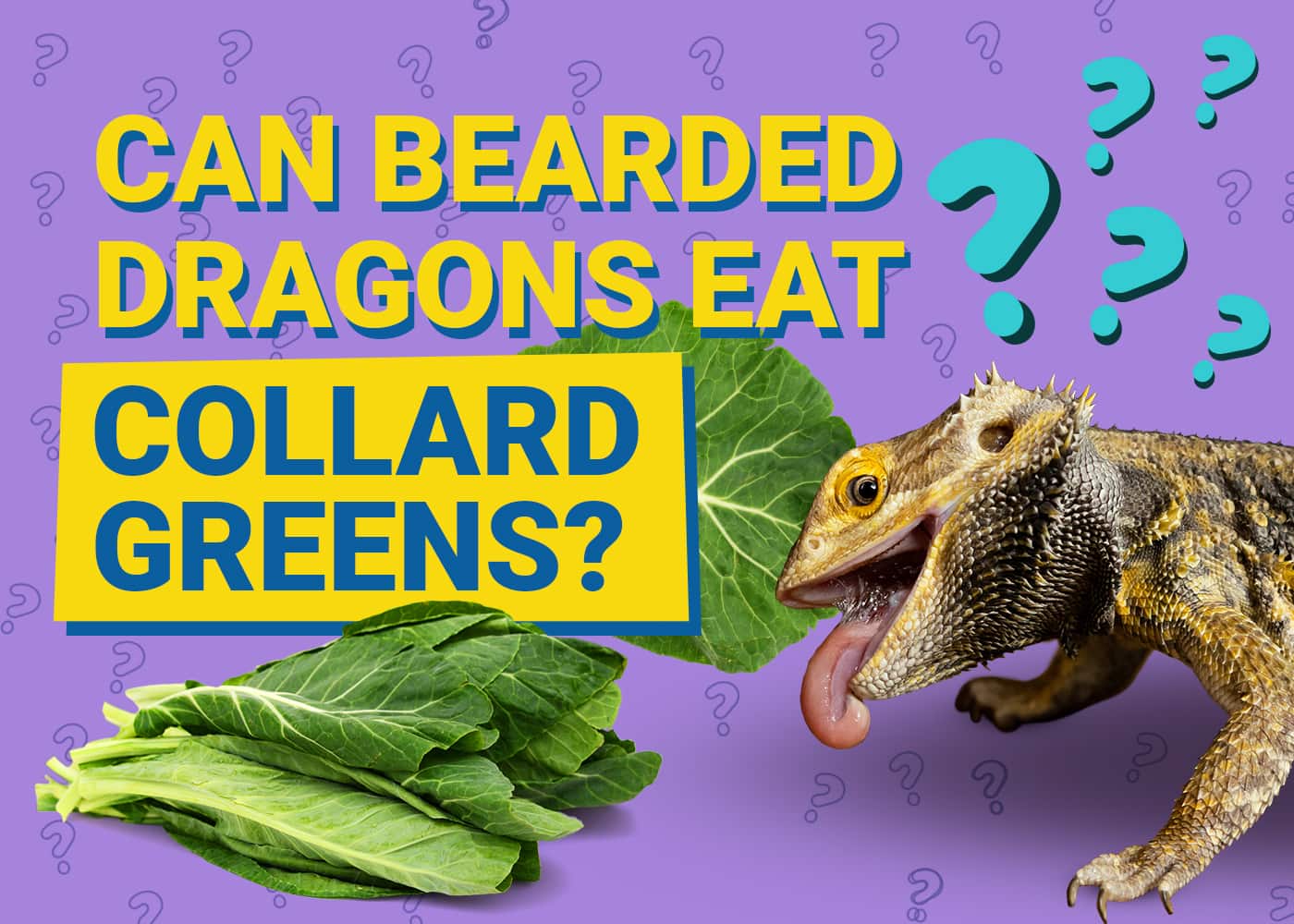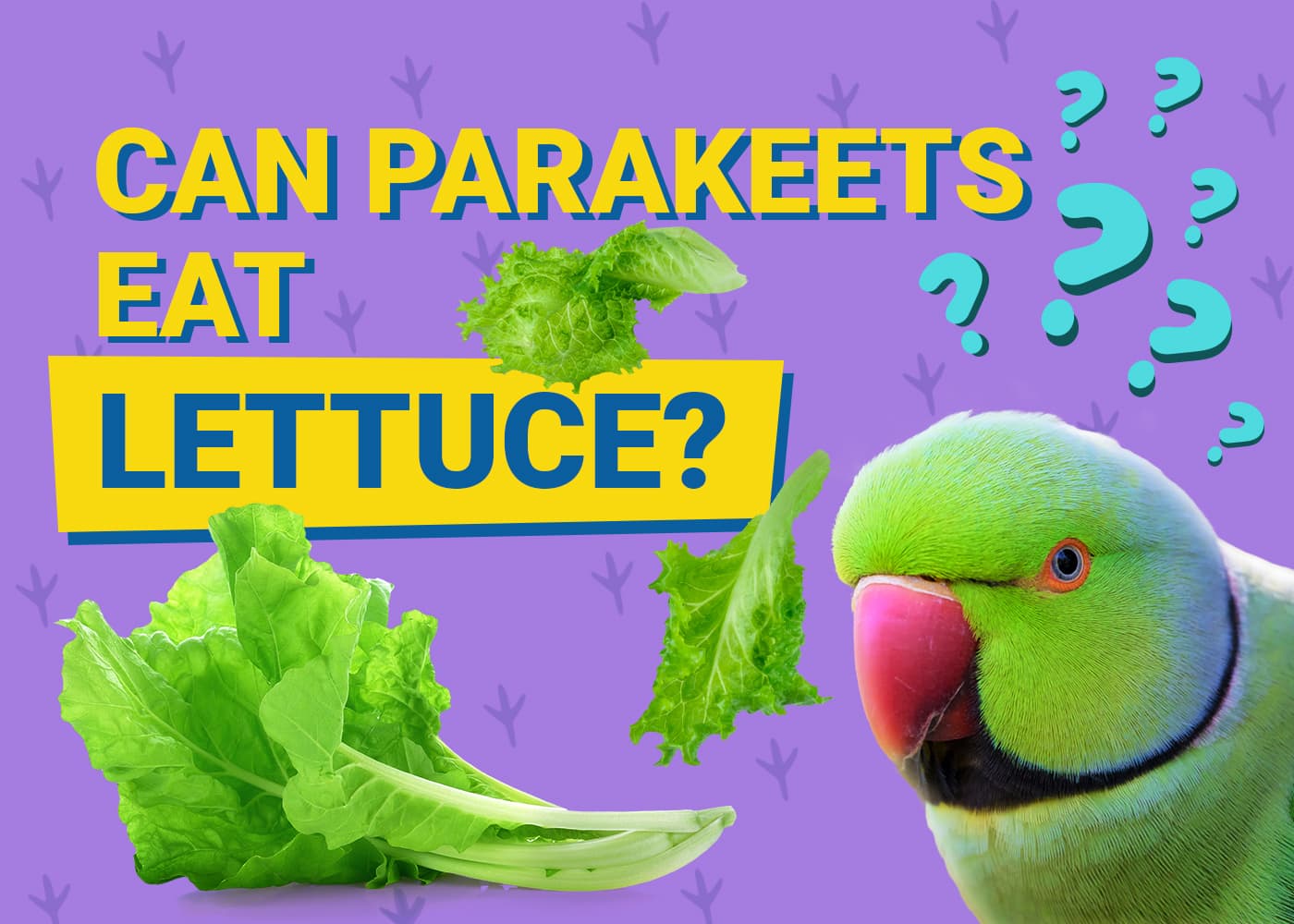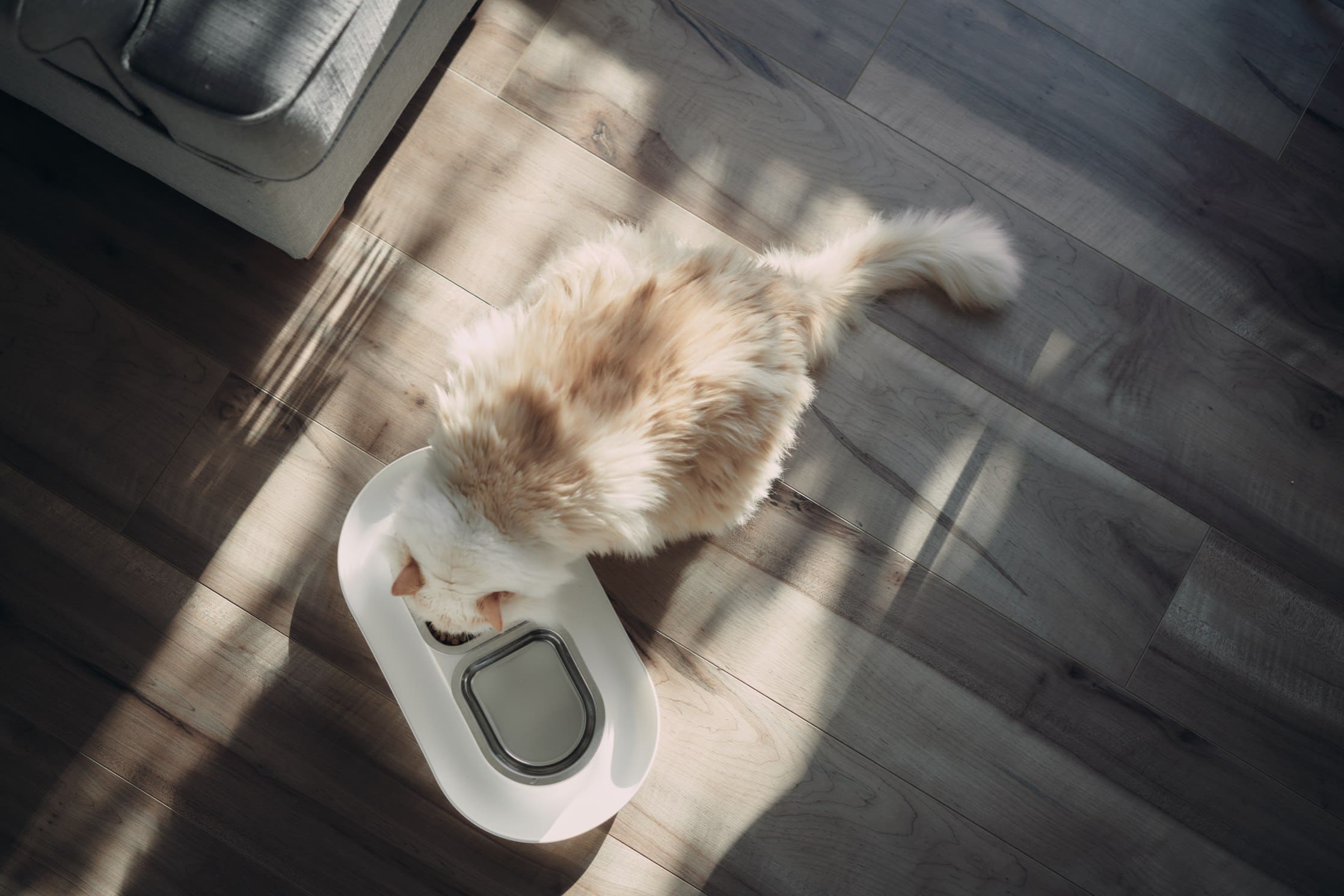VET APPROVED

The information is current and up-to-date in accordance with the latest veterinarian research.
Learn more »Click to Skip Ahead
Rabbits are herbivores, so owners tend to focus on hay, greens, veggies, and fruits when it comes to meal and snack time.1 While it might seem like all fruits and vegetables should be healthy for rabbits, the truth is that rabbits should avoid some of these foods at all costs. One type of produce that your rabbit should never eat is avocado. You might be wondering why, so let’s go over the facts and make sure you know everything about avocados and rabbits.

Avocados Are Toxic to Rabbits
Avocados are rich, creamy, and delicious. Most rabbits wouldn’t turn up their noses at a piece of avocado. However, rabbits should not eat avocados because this fruit is toxic to them. In fact, every part of the avocado, including the skin, flesh, seed, stems, and leaves, is dangerous for rabbits because all these components contain a compound called persin. The persin found in avocados is thought to affect the gastrointestinal and cardiovascular systems of a rabbit. The effects could lead to serious illness and even death.
Since it is known that the leaves and bark of avocados have a high concentration of persin, their ingestion is usually fatal. However, with regards to the fruit, the level of persin is not stable between different avocado varieties, and it changes through their maturation. As the fruit ripens, it loses persin concentration, so there is a small possibility that your rabbit may be able to eat a small piece of avocado pulp without repercussion; however, it is a risk just not worth taking. Keep avocados away from your rabbit to ensure that no side effects or health problems arise.
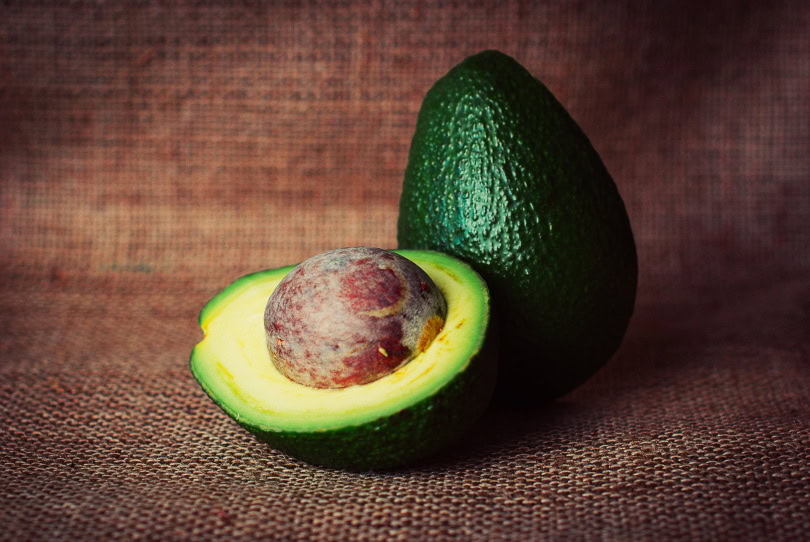
Other Foods That Your Rabbits Shouldn’t Eat
In addition to avocados, there are other types of foods that your rabbit should not be exposed to. Whether it’s due to toxicity, digestion problems, or weight gain issues, it’s best to stay away from the following foods when preparing a meal for your beloved pet rabbit:
- Pasta and Bread — These are high in carbohydrates and sugars and can cause serious digestion issues because they’re not a natural part of a rabbit’s diet.
- Iceberg Lettuce — It contains a compound called lactucarium that can be harmful to your pet rabbit’s health overall.
- Nuts — They’re too high in fat to have a place in a rabbit’s diet, even if just occasionally. In addition to the possibility of excess weight gain, nuts can cause an upset stomach.
- Meat — Rabbits are herbivores, so there is no place for meat products in their diet, period.
If your rabbit eats any of these foods, keep tabs on how they behave afterward. If you notice any problems, like lethargy, diarrhea, or a lack of appetite, among other things, it’s important to contact your veterinarian as soon as possible to get professional guidance and recommendations for how to proceed.

Common Fruits and Veggies That You Can Feed Your Rabbit
To be clear, rabbits require a diet that is at least 80% hay and includes 5% formulated pellets, in addition to a 10% greens and a maximum of 5% fruit as treats, to maintain a happy and healthy life. That said, here are some common foods that you can occasionally offer from your kitchen counter and fridge:
- Bok choy
- Carrot tops
- Radish tops
- Fennel
- Bell peppers
- Zucchini
- Coriander
- Cucumber
- Collard greens
- Basil
- Dandelion greens
- Kale
- Romaine lettuce
- Apples
- Plums
- Watermelon
- Grapes
- Blueberries
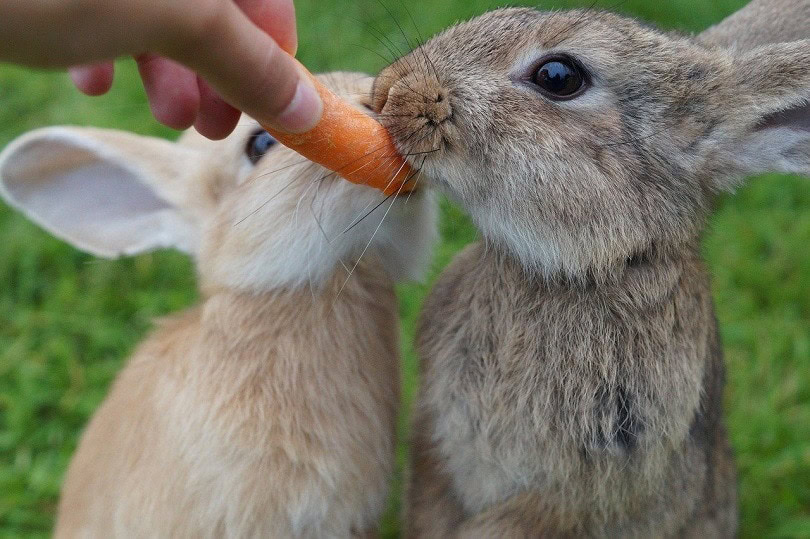
You can save a few veggies when you’re making dinner for your family and offer them to your rabbit during meal and snack time. It’s convenient and can help provide variety and create a highly nutritious diet that helps your rabbit thrive throughout their life.

Conclusion
Rabbits require a whole-food diet free of processed ingredients. Therefore, timothy, oaten, alfalfa, and other types of hay should be the main foods. You can give other vegetables as greens and fruits as occasional snacks to your rabbit to round out their meals, such as carrots or blueberries. Just be sure to keep avocados far away from them.
